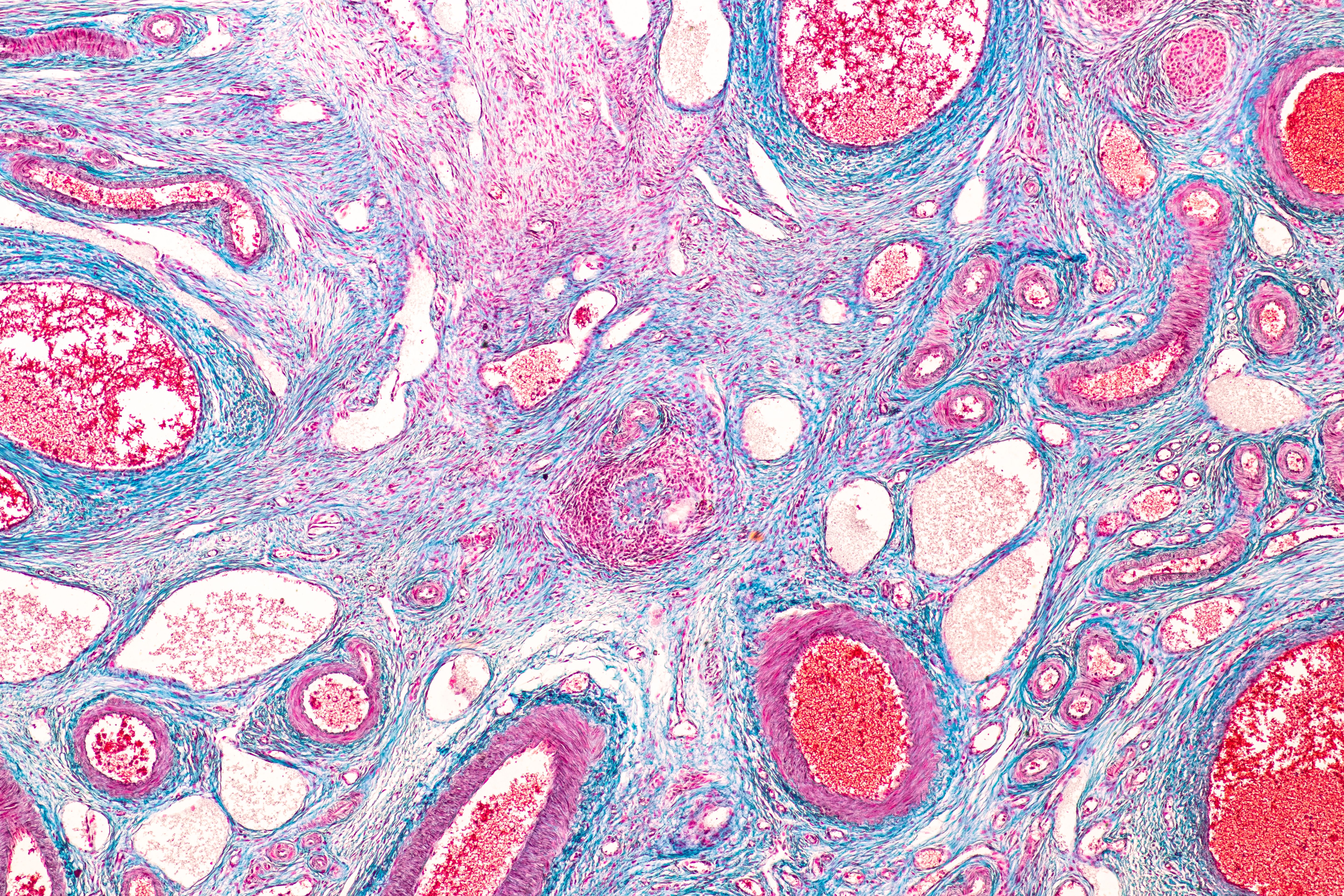FDA Fast Tracks AVB-001 for Relapsed/Refractory Ovarian Cancer
The fast track designation for AVB-001 granted by the FDA recognizes its potential as a treatment option for patients with relapsed/refractory ovarian cancer.

- The fast track designation (FTD) of AVB-001 from the FDA includes platinum-resistant, high-grade serous adenocarcinoma of the ovary, primary peritoneum, or fallopian tube.
- The safety and efficacy of ABV-001 is currently under investigation in an open-label, first-in-human, multicenter, phase 1/2 study (NCT05538624).
- Following positive findings from part 1 of the trial, investigators have initiated treatment in part 2 using the recommended phase 2 dose (RP2D).
The FDA has granted an FTD to AVB-001 as a treatment option for adult patients with relapsed/refractory ovarian cancer.1
AVB-001 is an encapsulated cell product made to produce native human interleukin-2 (hIL-2). The agent is delivered to patients as an intraperitoneal injection. AVB-001 is a part of Avenge Bio’s LOCOcyte™ immunotherapy platform for precision delivery of cytokines and other highly potent immune effector molecules by synthetically engineering allogeneic cells. The platform enables therapy to be localized to the primary tumor site and is designed to treat previously intractable cancers.2
The regulatory decision of AVB-001 includes platinum-resistant, high-grade serous adenocarcinoma of the ovary, primary peritoneum, or fallopian tube.1
Ovary under the microscopic: © sinhyu - stock.adobe.com

“We are extremely pleased to receive the FDA fast track designation for AVB-001 based on FDA's review of our preclinical and emerging clinical data,” said Michael Heffernan, chief executive officer at Avenge Bio, in a news release. “The fast track designation has been provided for platinum-resistant, refractory ovarian cancer, and acknowledges the potential for AVB-001 to treat this significant unmet medical need.”
ABV-001 is currently under investigation in an open-label, first-in-human, multicenter, phase 1/2 study. The trial plans to evaluate the safety and efficacy of the agent in patients aged 18 years of age with histologically confirmed, metastatic or unresectable, platinum-resistant, high-grade serous adenocarcinoma of the ovary, primary peritoneum, or fallopian tube who have not received more than 5 prior lines of therapy.3
To be included in the study, patients must have had prior treatment with a PARP inhibitor, bevacizumab (Avastin) or any other antiangiogenic agent, immunotherapy, or cell therapies, and disease progression or intolerance to a PARP inhibitor is required for patients who have germline or somatic BRCA mutations. Patients must also have an ECOG performance status of 0 or 1, measurable disease per RECIST v1.1 criteria, an absolute neutrophil count greater than 1500/μL, a hemoglobin level of at least 9.0 g/dL, a platelet count of at least 100,000/μL, and a creatinine clearance of at least 50 mL/min.
The phase 1/2 study is being conducted in 2 parts, with part 1 being the dose-escalation portion of the trial where up to 24 patients will be given a single intraperitoneal dose of AVB-001 at 0.6, 1.2, 2.4, or 3.6 μg hIL-2/kg/day. In part 2, the dose-expansion portion of the study, up to 20 additional patients will be enrolled and treated with a single dose of AVB-001 at the RP2D determined.
Part 2 of the study may include additional expansion cohorts to assess AVB-001 as monotherapy or as part of an exploratory combination.
The primary end points for part 1 of the trial are the incidence of dose-limiting toxicities (DLTs), to determine the maximum tolerated dose and RP2D, and the incidence of treatment-emergent adverse events (AEs) or serious AEs. Secondary end points for this part consist of overall response rate (ORR), duration of response (DOR), progression-free survival (PFS), and overall survival (OS).
For part 2 of the study, the primary end point is ORR per RECIST v1.1 criteria, with secondary including safety, DOR, PFS, and OS.
Previously in April 2023, the first dose level cohort of the phase 1/2 trial was successfully completed, and AVB-001 was well-tolerated among patients with refractory ovarian cancer as no DLTs, on-target toxicities, off-target toxicities, or other unexpected events were seen.4 Investigators have now initiated dosing in the phase 2 dose-expansion portion of the trial.
REFERENCES:
Avenge Bio receives FDA fast track designation for AVB-001, a novel cell therapy leveraging the LOCOcyte™ immunotherapy platform. News Release. Avenge Bio, Inc. October 2, 2023. Accessed October 2, 2023. https://tinyurl.com/ycx25d9v
Developing cell generated immunotherapies to eradicate solid tumors. Technology + Pipeline. Accessed October 2, 2023.https://tinyurl.com/muh4mbpv
A study of intraperitoneally administered AVB-001 in patients with serous adenocarcinoma of the ovary. Updated March 21, 2023. Accessed October 2, 2023. https://tinyurl.com/26huj4cb
Avenge Bio announces successful completion of first dose level cohort in phase 1/2 clinical trial of AVB-001 for the treatment of ovarian cancer. News Release. Avenge Bio, Inc. April 23, 2023. Accessed October 2, 2023. https://tinyurl.com/5n7bz58x
Avutometinib/Defactinib Leads to Positive Response, Survival Data in Ovarian Cancer
October 18th 2024The completion of a new drug application for the combination of avutometinib and defactinib in KRAS-mutant ovarian cancer is expected to be finalized with the FDA by the end of the month.
Read More